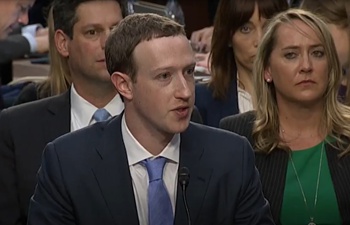By Claire Logue
HOUSTON, April 15 (Xinhua) -- Chinese students studying internationally may be susceptible to certain mental health issues, and that the situation may be worsening, Yu Liu, assistant professor of clinical mental health counsel at the University of St. Thomas in Houston told Xinhua in a recent interview.
"From my personal and clinical perspective, I believe things are getting worse," Liu told Xinhua, stating that this may be due to students moving to other countries for school at younger ages than in the past, or that people are starting to realize how serious mental health is.
A survey released by Yale University researchers in 2013 found that 29 percent of Chinese international students on their campus reported symptoms of anxiety, and a startling 45 percent reported symptoms of depression. This is more than double and triple the average 13 percent rate of depression and anxiety for the general student population at American universities and colleges.
Sitting down in the Clinical Mental Health Counseling office on the University of St. Thomas campus, Liu told Xinhua about her experiences and insights on the relative mental health of Chinese students studying in the United States.
"I see struggles with depression, anxiety and social adjustment," Liu said. "Nowadays, more students are coming for undergrad or high school, and even some are coming for middle school."
Being an only child, like most Chinese students are, means things are taken care of, letting the child focus on school work and performing well, Liu said. But this means some students are not prepared for taking care of their own home, managing their finances, and the resulting stress of these lifestyle changes can be exacerbated by cultural changes in new environments.
"Everything had been taken care of before we came here," said Liu, who had been an overseas student herself. "They don't know how to maintain a household, manage their money and their friendships, and it becomes an experiment time. Some people go through this experiment time easily, and others will develop mental health issues."
While Liu indicated that it is not necessarily more likely for Chinese students to face mental health issues, there are definitely unique challenges. One of these challenges is adjusting to a culture with more siblings.
Cultural differences can prompt major adjustments, and for most international students, this is accompanied by language problems.
"Language becomes a big issue," Liu told Xinhua. "When you don't have the skills in a language, you don' t know how to ask, who to ask or what to say."
Although sometimes it can be difficult to determine when you need help, Liu said there are helpful indicators of potential mental health problems.
"Individuals are different, and experiences are different," Liu told Xinhua. "But most likely when someone is suffering from depression, they have lack of interest in the things that they used to like to do."
She gave the example of a runner. If someone who enjoys long jogs suddenly has no desire to go running and sees no joy in the activity he used to enjoy. She also said those suffering from depression also begin to question the purpose of things.
Besides depression, anxiety is another mental health issue Liu has commonly seen in her clinical practice. Like with most things, anxiety exists on a scale, and when you begin to have physical, consuming symptoms related to anxiety, this is the time to seek help.
"We might have certain anxieties about things, but if it comes to the point that I am unable to do complete activities, and I become consumed with the things I am anxious about," Liu said, this is where you can see real problems with anxiety.
According to Liu, there are several factors involved in one's ability to handle mental health, such as their support systems and their learned coping strategies -- how they are taught to handle things in times of mental distress. These support systems can be family members or friends, but access to that support can be difficult after moving a long distance from home.
"Some international students do not have their families around them," Liu said. "So friends become this huge support system for them."
Because of this shift in comfort and a variety of other changes, Liu said it can be difficult to determine when you might need help and what to do when you're not feeling like yourself.
Most of the Chinese students Liu provides counseling help are ones that are required to do so. "The majority of them are prompted because something has happened in their academic performance and the school intervened, asking for reasons or issues, and asking them to go seek counseling services."
Ultimately, Liu wants students to know that seeking counseling does not mean you are "sick or crazy." With the resources available on most college campuses, she would like to see more information going out to the students.
Liu believes it is important for school to provide "a checklist," so that students can identify when a problem is medical and when a problem is mental. This would help them identify their personal need for counseling or a psychiatrist.
She also emphasized the importance of awareness of mental health and removing the stigma. "I think it is very important for us to know how important is to take care of mental health, just like we take care of our physical health," Liu said. "It is equally important."
"We could just have a problem with our best friend," Liu said. "Then seeking counseling can help us figure out how to have relationships with the significant others in our life. It is going to be beneficial no matter what the issues are."













